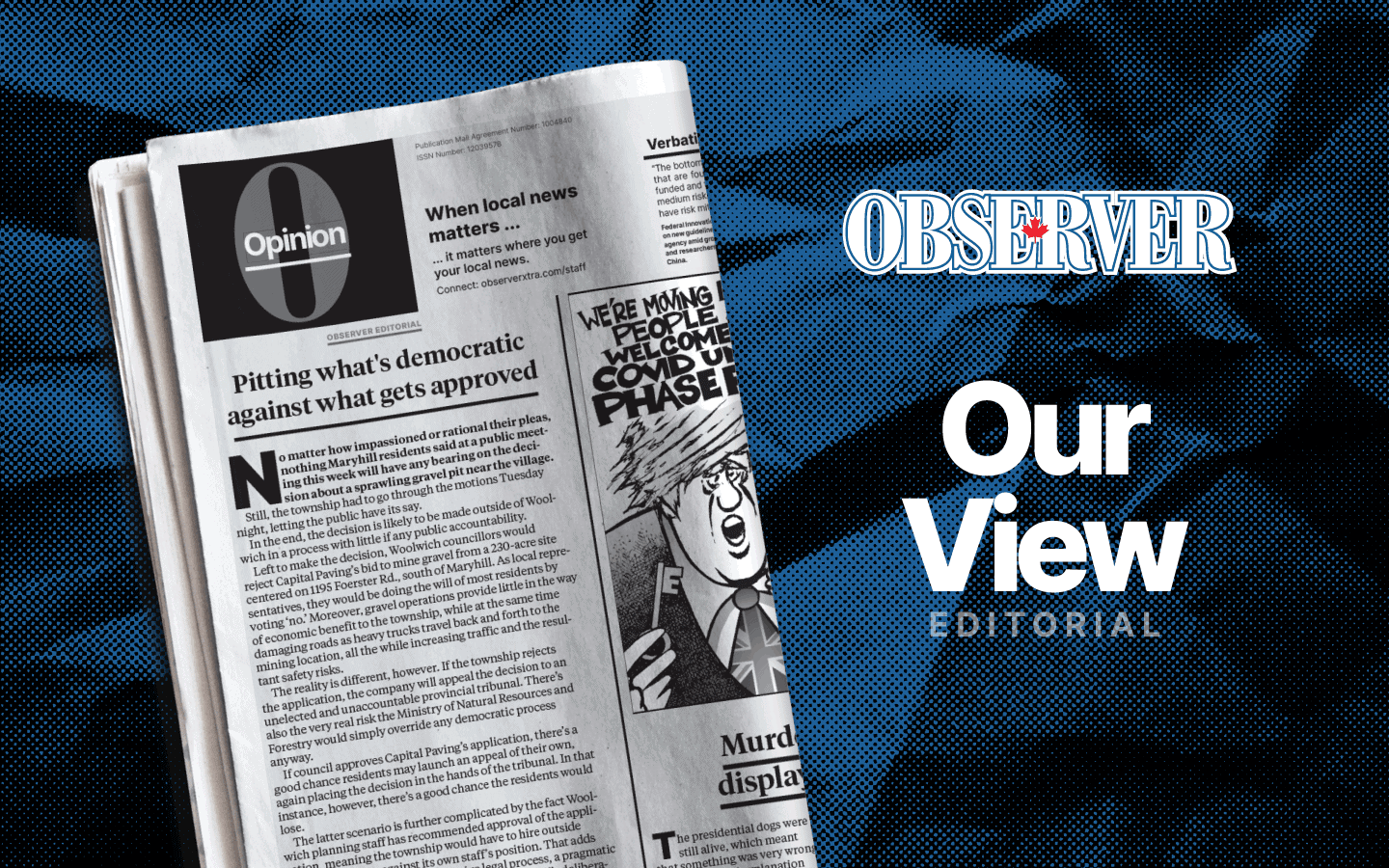;
;
;
With their protests against tax increases, Wellesley residents are setting an example that should be followed by other municipal ratepayers. A 14 per cent tax hike would be a bridge too far at any time, but is especially irksome given the economic burden already heaped on residents. More than half o
Last updated on May 03, 23
Posted on Feb 16, 23
3 min read
